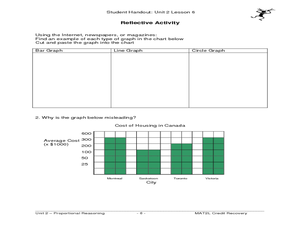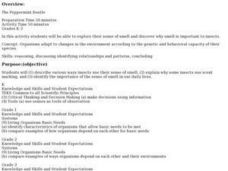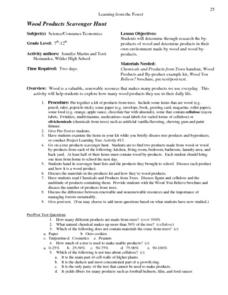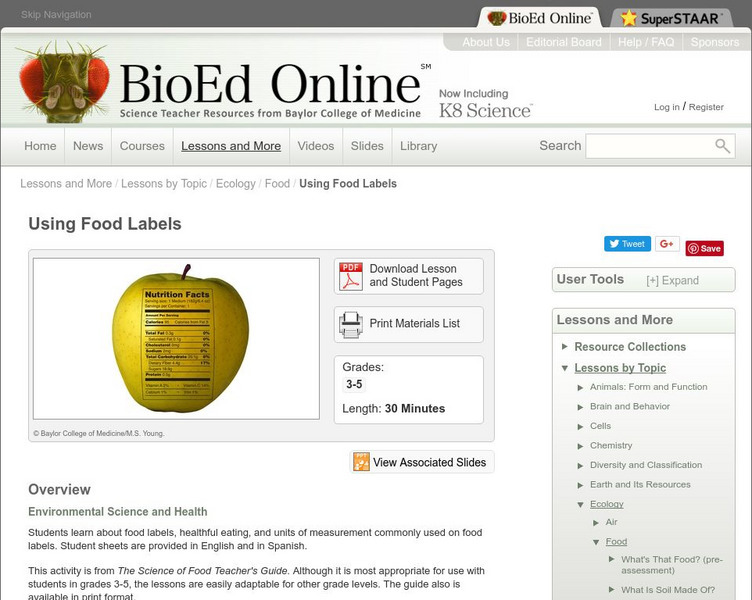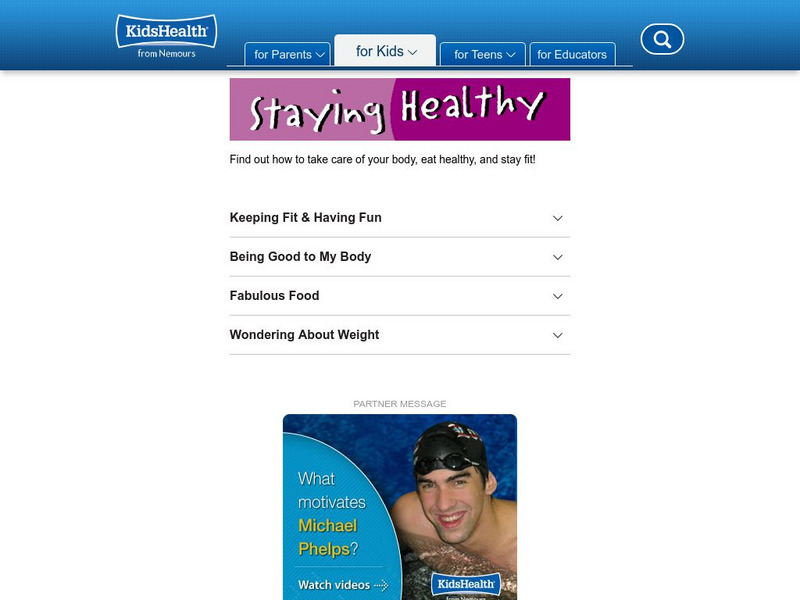Curated OER
Trustworthy Images
Young scholars investigate metaphors. In this writing lesson, students brainstorm traits of a trustworthy person and create a metaphor for a trustworthy person.
Curated OER
The Circle Graph
In this circle graph worksheet, students complete problems involving many circle graphs including a compass rose, degrees, and more. Students complete 7 activities.
Curated OER
Wacky Water Critters
Students visit a local creek or stream. They collect water samples from the creek and observe and sort the "water critters" they find in the sample, observing smaller organisms under a microscope if necessary. They identify each organism...
Curated OER
The Many Shades of Our World
Students discover diversity. In this civil rights lesson, students consider that skin color is unique and that diversity is common in the world as they complete artwork that reflects the writings of Dr. Martin Luther King, Jr.
Curated OER
Cellular Respiration
In this cellular respiration learning exercise, students answer 34 questions in a variety of types including fill in the blank, short answer and matching. All questions focus on specific parts of the respiration process.
Curated OER
Yeast Experiments
In this science worksheet, learners explore two experiments involving yeast. Students discover that yeast grows faster at room temperature than at hot or cold temperatures.
Curated OER
The Peppermint Beetle
Learners describe various ways insects use their sense of smell, and examine why some insects use scent marking. They conduct a scent hunt, searching for a particular scent on the trees on school grounds.
Curated OER
LESSON 3: The Many Shades of Our World
Students recognize that people have many different types of skin color.
Curated OER
Viruses, Bacteria, Protists, and Fungi
In this viruses, bacteria, protists, and fungi activity, students will review the basic characteristics of each of these groups. Students will complete 7 fill in the blank questions about viruses, 6 true or false questions about...
Curated OER
Wood Products Scavenger Hunt
Students investigate the by-products of wood and explore the wood products in their own environment. Products containing both cellulose and silvichemicals obtained from the trees are examined in this lesson plan.
Curated OER
Kids Health: What Do Food Labels Really Say?
An overview of food labeling history and importance, how to read food labels, basic components of a food label, and a comparison of different foods.
National Institutes of Health
Niehs: Food Labels Tell the Story!
Read about the building blocks of food and how to read food labels to make better choices about what you eat.
BioEd Online
Bio Ed Online: Using Food Labels
Do you know how to read a food label? Food labels provide important information about the nutritional value of foods. In this lesson plan students will learn about food labels, healthful eating, nutrition facts, and units of measurement...
ClassFlow
Class Flow: Nutrition Facts Labels
This lesson focuses on how to read nutrition and ingredient labels. A quiz is provided at the end of the slideshow.
Children's Museum
The Children's Museum of Indianapolis: Health House: Food, Fitness and Fun: 24/7
Engage your students in what it means to live a healthy life. They'll learn how to read food labels and understand basic nutrition. They'll take part in fun active play and learn about exercise benefits. Learn why healthy habits such as...
PBS
Pbs Learning Media: What's in That Box of Cookies, Anyway?
In this video segment from TV 411, learn how to read nutrition labels on food containers and calculate the calorie content of different serving amounts.
Other
Kids' World Nutrition Information: Understanding Food Labels
In order to plan a healthy diet, students must know how to read a food label. Food labels show that a food has a little or a lot of certain nutrients. Look on the side of a product to find the Nutrition Facts title, which is fully...
Other
Grace Communications: Food Print
An environmentally conscious group brings to light the relationship between food, water and energy, and the importance of sustainability. The site looks at issues such as animal welfare, social justices, food policy, the industrial food...
US Department of Agriculture
Choose My Plate: How to Eat More Whole Grain Food
Find notes at this website that will help you eat whole grains at meals and for snacks. Includes tips for reading food labels and teaching young children how to make healthy food choices.
US Food and Drug Administration
U.s. Food and Drug Administration: The Food Label
Read about how the U.S. Food and Drug Administration, through the use of food label, plans to make Americans informed consumers of food. Here, you can learn about the sections of the food label and read definitions of the terms like...
Utah Education Network
Uen: Nutrient Detectives
Lesson focuses on understanding of how to read and understand nutrient information on food labels.
Curated OER
Kids Health: Staying Healthy
Find yummy recipes for food to make yourself! There are also articles about the reasons for vitamins and minerals, how to eat when you're playing sports, and a number of other important topics.



